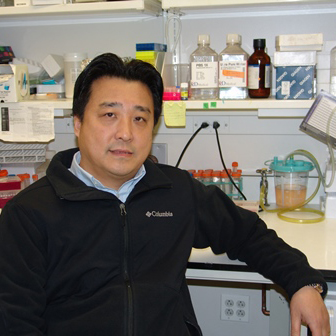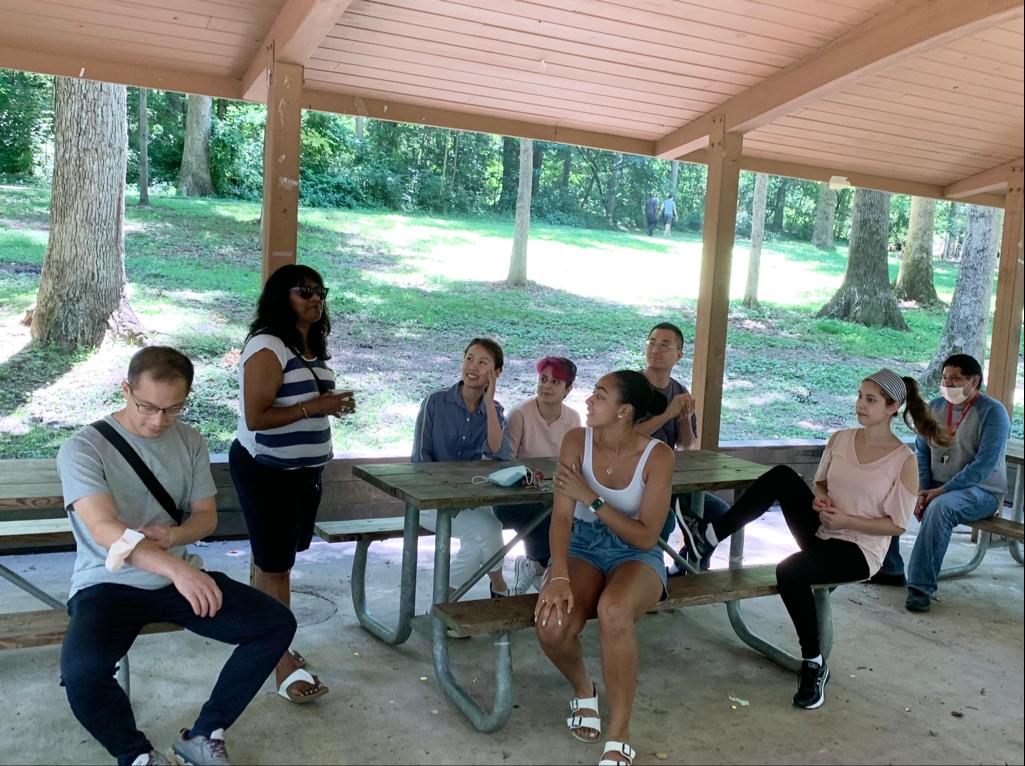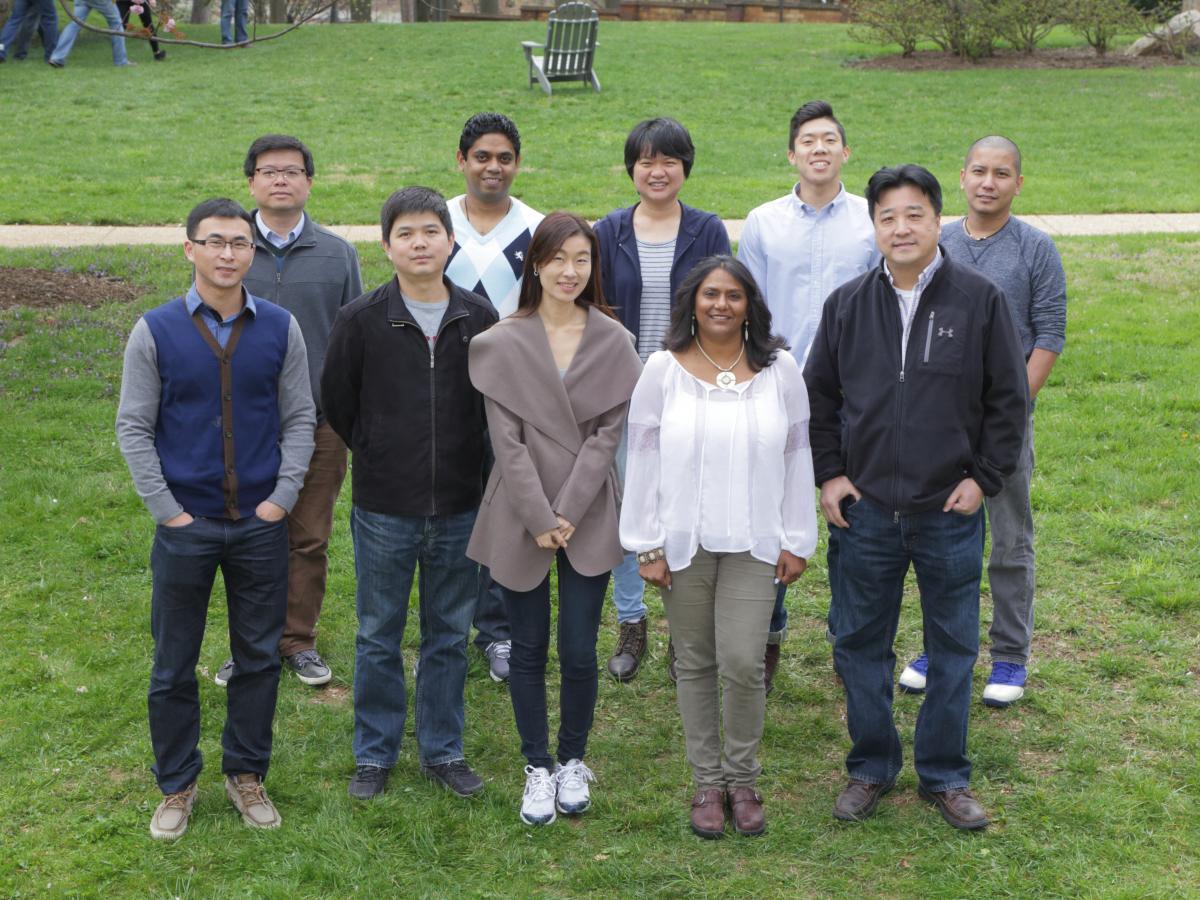
Zheng-Gang Liu, Ph.D.
- Center for Cancer Research
- National Cancer Institute
- Building 37, Room 1130
- Bethesda, MD 20892
- 240-760-6826
- zgliu@box-z.nih.gov
RESEARCH SUMMARY
Dr. Liu is a renowned researcher in the fields of tumor necrosis factor (TNF) signaling and the regulation of apoptosis and necrosis. He made several seminal findings to the current understanding of TNF signaling and the mechanisms of cell death. For instance, his lab demonstrated that RIP1 cleavage by Casp-8 is a key regulator of TNF signaling and that MLKL is an essential component of TNF-induced necrosis. More recently, his lab has also worked on the role of inflammation in tumorigenesis and the regulation of macrophage differentiation.
Areas of Expertise

Zheng-Gang Liu, Ph.D.
Research
Tumor necrosis factor (TNF) is a proinflammatory cytokine that plays a critical role in diverse cellular events, such as cell proliferation, differentiation and cell death. TNF is also involved in many types of diseases, including cancer. Inappropriate production of TNF plays a critical role in the pathogenesis of both acute and chronic inflammatory diseases such as septic shock, AIDS, and arthritis. The development of anti-TNFalpha therapy is arguably the most significant achievement in the treatment of autoimmune diseases such as rheumatoid arthritis and Crohn's disease. Opposing effects of TNF on cancer have been described: a high dose of TNF (acute inflammation) has anti-neoplastic effects, for example, direct cytotoxicity on certain types of cancer, while an endogenous low dose of TNF (chronic inflammation) promotes cancer development.
Studies from many laboratories have demonstrated that the diverse TNF-mediated biological responses are achieved through activating multiple signaling pathways. Although much information about TNF signaling has been obtained in recent years, many molecular aspects of TNF signaling and its role in inflammation and cancer development remain unknown. Therefore, uncovering the molecular mechanism of TNF signaling will not only shed new light on the physiological regulation of TNF function but also help us to understand its role in inflammation and cancer development. In addition, due to the importance of macrophage in mediating inflammatory response, including TNF production, and the proposed role of tumor-associated macrophage (TAM) in tumorigenesis, an understanding of monocyte/macrophage differentiation will help us to understand the mechanism of inflammation-mediated tumor development.
In the last 4 years, we have made several significant contributions towards a better understanding of the molecular mechanism regulating TNF signaling and macrophage differentiation. In the next 4 years, we will continue to investigate the regulation of TNF signaling, particularly the molecular mechanisms of TNF-induced cell death, and to explore the underlying mechanism of the promoting effect of inflammation on tumorigenesis as specified in the following two projects:
Project 1. Studying the Regulation of TNF-induced Cell Death and the Involvement of Key Cell Death Regulatory Proteins in Tumorigenesis
- Aim 1: Investigating the regulation of TNF-induced apoptosis by the novel anti-apoptotic protein, ATIA, and its potential role in tumorigenesis.
- Understanding the underlying mechanism of the anti-apoptotic effect of ATIA.
- Demonstrating the importance of ATIA in tumorigenesis.
- Aim 2: Identifying and studying novel players in TNF-induced necrosis and exploring the role of necrosis in tumorigenesis.
Project 2. Investigating the Mechanism(s) of the Promoting Effect of Inflammation in Tumorigenesis
- Aim 1: Understanding the role of TRADD-mediated inflammation in tumorigenesis.
- Aim 2: Studying the regulation of monocyte/macrophage differentiation and the role of tumor-associated macrophage in tumorigenesis.
- Investigating the regulation of monocyte/macrophage differentiation.
- Studying the role of tumor-associated macrophage in tumorigenesis.
Publications
- Bibliography Link
- View Dr. Liu's Complete Bibliography at NCBI.
ZBP1 not RIPK1 mediates tumor necroptosis in breast cancer
Activation of cell-surface proteases promotes necroptosis, inflammation and cell migration
Plasma membrane translocation of trimerized MLKL protein is required for TNF-induced necroptosis
Mixed lineage kinase domain-like is a key receptor interacting protein 3 downstream component of TNF-induced necrosis
Cleavage of the death domain kinase RIP by caspase-8 prompts TNF-induced apoptosis.
Biography

Zheng-Gang Liu, Ph.D.
Dr. Liu received both his bachelor's and master's degrees in biochemistry from Peking University, People's Republic of China. He completed his Ph.D. training in Dr. Larry Schwartz's laboratory at the University of Massachusetts and carried out his postdoctoral training in the laboratory of Dr. Michael Karin at the University of California, San Diego. In 1998, he joined the former Cancer and Cell Biology Laboratory, Medicine Branch, Division of Clinical Science. He became a senior investigator in 2005 and joined the LICB in 2017. His research interests have focused on the molecular mechanisms of apoptosis and necrosis and the role of cell death and inflammation in tumorigenesis.
Job Vacancies
We have no open positions in our group at this time, please check back later.
To see all available positions at CCR, take a look at our Careers page. You can also subscribe to receive CCR's latest job and training opportunities in your inbox.
Team
News
Learn more about CCR research advances, new discoveries and more
on our news section.
Lab Life





From Left Back Row: Dan Ma, Chamila kadigamuwa, Anling Zhang, Jonathan Jang, Aian Neil Alilin
From Left Front Row: Qing Xu, Zhenyu Cai, Moran Choe, Swati Choksi, Zhenggang Liu


